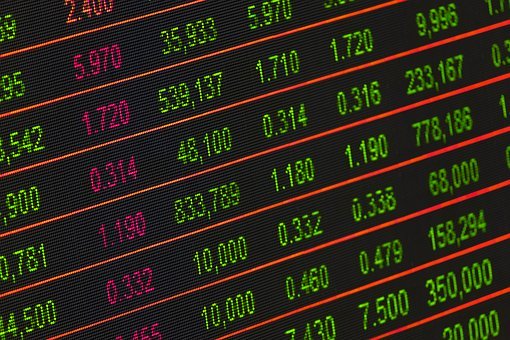October 2022 Investment and Economic Update

Our latest monthly investment update for October 2022 looks at how the global investment markets, economy, and commodities are performing.
The FTSE 100 index of leading UK company shares closed at the end of September at 6,893.81 points, down 390.34 points or 5.36% during the month.
European stock markets declined last month due to recession fears, with the impact in the UK especially pronounced as markets lost confidence in the new government.
Newly appointed Chancellor Kwasi Kwarteng announced a ‘mini Budget’ that sent financial markets into negative territory, leading to a weaker Pound Sterling and the necessity of an emergency bond buying programme by the Bank of England, to stabilise gilt markets.
It was the third consecutive quarterly decline for European stock markets as investors responded to rising interest rates and mixed economic data.
Eurozone inflation exceeded forecasts to reach 10% in September, a new record high for the trading bloc. Higher inflation figures fueled expectations of further interest rate hikes from the European Central Bank.
The STOXX 600 index of European company shares fell 4.8% between July and September, as it continued its longest losing streak since 2011.
Financial markets turned negative at the outset of the Russian invasion of Ukraine, which resulted in soaring wholesale gas prices and significantly higher price inflation. Central banks are using interest rate hikes as a tool to reduce demand and bring inflation down.
However, monetary tightening is also likely to result in an economic slowdown leading to a global recession.
In the US, consumer spending data at the end of September showed a rebound in August, following a fall in July. Stronger consumer spending data, despite higher borrowing costs, lead to fears about even tighter monetary policy moves from the US Federal Reserve.
Despite the mini-budget, UK markets paused for breath at the end of September on revised official economic data, finding that the UK economy grew in the second quarter. Previous forecasts suggest the economy had contracted, setting the scene for a recession in the third quarter.
The Office for National Statistics (ONS) reported that the UK’s gross domestic product (GDP) grew by 0.2% in the three months to June, postponing the possibility of a recession requiring two consecutive quarters of contraction.
Pound Sterling also recovered the losses incurred since Chancellor Kwarteng’s mini-Budget, with Sterling rising to $1.116 against the US dollar, up from a low of just under $1.04.
In a U-turn from his announcement a little more than a week earlier, the Chancellor scrapped a decision to scrap the additional income tax rate at 45p, based on feedback from MPs and other delegates at the Conservative Party Conference in Birmingham.
Announcing the U-turn, the Chancellor said the plan had “become a distraction from our overriding mission to tackle the challenges facing our country.”
The tax cut would have resulted in a 40% tax rate on earnings above the £150,000 threshold instead of 45% and would have been funded by £2 billion a year of government borrowing.
A newly published survey at the start of October shows that UK manufacturing output declined for a third consecutive month in September, with orders declining for the fourth month.
The S&P Global Manufacturing Purchasing Managers’ Index (PMI) rose to 48.4, up from 47.3 in August, with an index reading below 50 indicating contraction.
S&P Global said: “September saw new export business contract at the quickest pace since May 2020, with reports of lower demand from the US, the EU and China.
“Manufacturers faced weak global market conditions, rising uncertainty, high transportation costs reducing competitiveness and longer lead times leading to cancelled orders.”
House price growth in the UK appears to be slowing, with the latest Nationwide House Price Index showing average prices with zero growth in the past month.
The latest data means the average UK house price is now £272,259, with annual growth slowing from 10% in August to 9.5% in September.
Oil prices rose by nearly $4 a barrel at the start of October, as oil-producing cartel OPEC+ considered a significant reduction in output to support markets. OPEC+ is mulling an output cut of more than one million barrels per day, representing the largest cut in supply since the onset of the Covid-19 pandemic.
Benchmark Brent crude futures started the month at $88.60 a barrel, with US West Texas Intermediate at $82.88.
Globally, oil prices have declined for the past four months, with renewed Covid lockdowns in China damaging demand along with rising interest rates and a strengthening US Dollar.
£1 buys $1.1598 or €1.1557. Gold is $1,712.40 an ounce, and UK natural gas futures are $325.00p/therm, down from $431.05p/therm a month earlier.
Kellands will continue to keep you updated on market developments on a regular basis. However, if you have any questions or need some financial advice in the meantime, please do not hesitate to get in touch.
